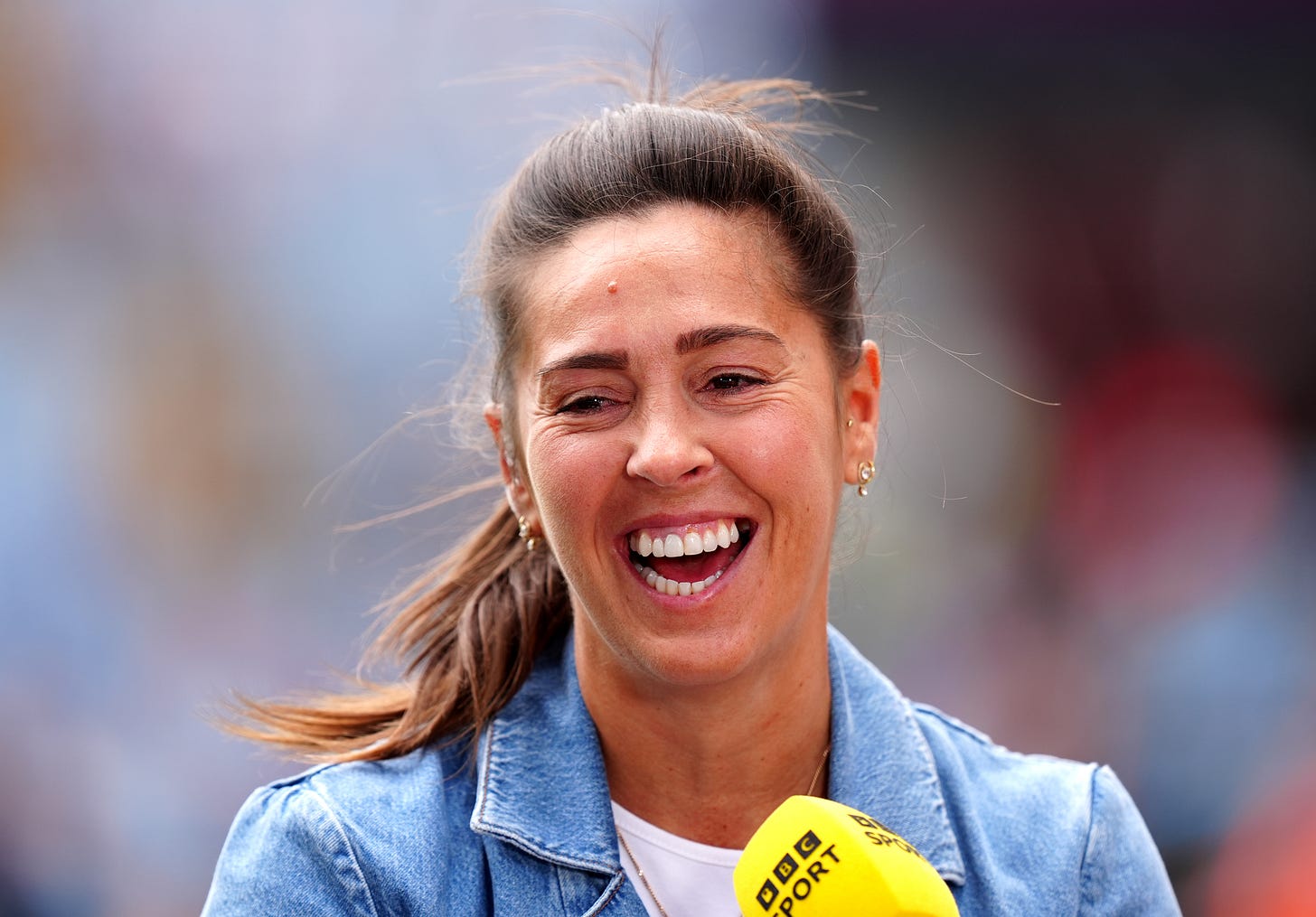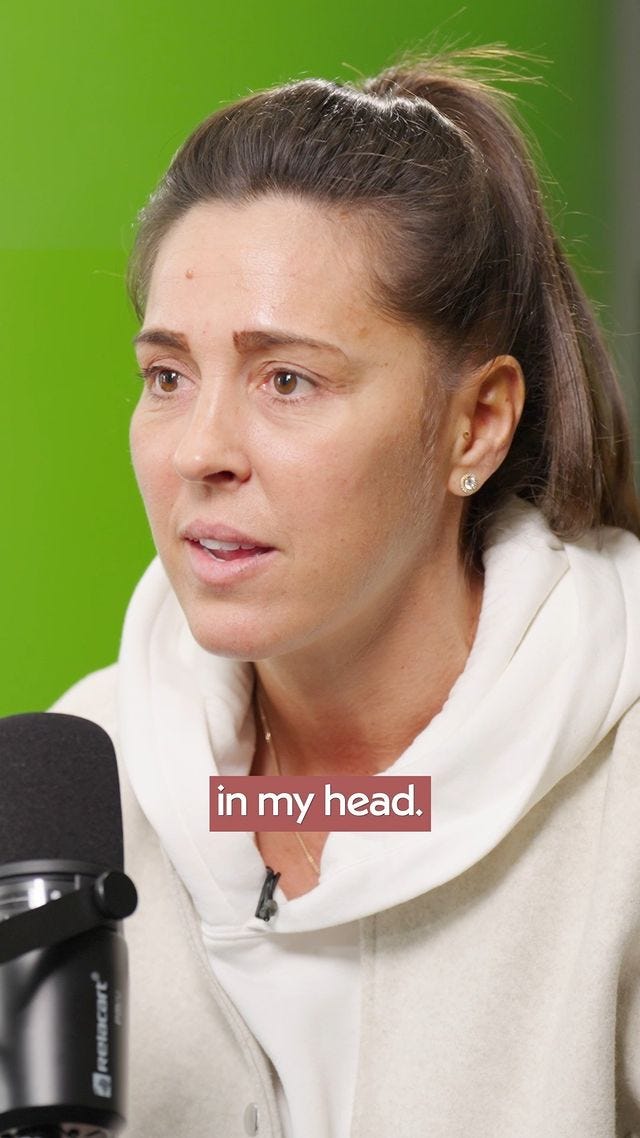Former Lioness star Fara Williams: changing the language around exercise can help girls stay active
Parents can be positive role models when it comes to encouraging young girls to discover the joys of being active
Want to encourage your daughter to have a positive relationship with exercise, but don’t see yourself as a ‘sporty’ type?
Former Lioness Fara Williams thinks changing how we talk about exercise helps.
“It really is about the terminology used. When you talk about physical activity and sport, often the first thing that pops to mind is being competitive – but not everybody is sports-minded, not everybody is competitive,” says London-born Williams, who racked up a record 177 caps for England before her retirement in 2019, and now regularly appears as a sports presenter on TV.
“Reframing it to ‘movement’, so it’s just about moving in some capacity, is so encouraging. It’s not about how fast you go, how far you go, it’s about just getting enough movement in your day.”
Williams, 40 – who also played for Arsenal, Reading and Liverpool and was just 12 when she started out with Chelsea’s under-14s squad – is supporting Nuffield Health’s ‘Move Together’ programme, which is all about getting girls aged 11-16 moving more (research shows participation levels for girls in sport drops during teenage years).
As well as already providing free classes for girls aged 11-16 at centres across England, Wales and Scotland, in a bid to encourage parents and carers to role-model a positive relationship with movement, the scheme is also offering free gym passes to parents and carers accompanying their children this summer.
Williams, who experienced poverty and homelessness at 17 and spent seven years living in hostels, is a big believer in helping remove barriers when it comes to physical activity.
“Certainly when it comes to paying for the kids to participate in physical activity or sports outside of school, it comes at a cost,” says Williams. “I think the fact we’re taking one small barrier away and giving the opportunity to allow young girls access to movement for free, is great.”
“Movement has so many positive things that come with it… Feeling like you belong as part of something, long-term health, mental wellbeing… It really did help me”
Fara Williams
Almost a quarter (24%) of parents of 11-16-year-olds say they feel motivated to exercise in order to be a positive role model for their children, rising to 34% when it comes to setting a positive example for their daughters, according to new research from Nuffield Health’s fourth Healthier Nation Index. What’s more, 57% of the 1005 parents and carers surveyed said they want to exercise more frequently with their daughter, so they can have more quality time together.
Most (80%) of the parents surveyed believe they can positively influence their daughters’ movement habits, with 76% of their daughters agreeing. However, many parents admit to not having been very active during their own childhoods, with almost half (48%) saying this was because they weren’t raised in a ‘sporty family’.
Williams is keen to encourage families to focus on the positives of having more movement in your life.
“Whether you’re sporty or not, we all need to move in order to help us long term with our health, and certainly our mental health,” she says, recalling the difference being active made during her own younger years.
“If I look back, I was lucky I did have football. That routine of being able to go out, being around people, and for my mental wellbeing. I always knew if I was stressed about anything, if I went and did exercise through football, then that would change the thoughts that were going on in my head.
“Movement has so many positive things that come with it,” she adds. “Feeling like you belong as part of something, long-term health, mental wellbeing… It really did help me when I was living in a hostel.”
She appreciates busy parents can have a lot to juggle.
“Especially for some parents, you can kind of get swept away a little bit with parenting and work and managing a household, that you probably put movement on the back-burner. But we know that with the long-term health effects, it is really important that we become a more active nation.
“And it can be small movements – walking to school, walking to the shop, walking to your mate’s house rather than jumping on the bus. Small changes that will play a huge part,” adds Williams. “Having a day out but walking to the park with the kids, as opposed to driving.”
Now she no longer has the pressures of competing, Williams says she enjoys being able to move without worrying about performance.
“I actually really enjoy it now! Since retiring and being able to leisurely train and exercise or walk and run, I really enjoy it, it’s part of my daily routine. I get up and do my jog, I walk. I allow myself [to think] – as long as you get it done, it doesn’t matter how long it’s taking me, whereas it always used to be about, ‘Oh, make sure you do it in X amount of time, otherwise you’re not going to get fit and it’s no benefit’.
“I understand now that any sort of movement is beneficial. That’s why I’m so excited to be part of this ‘Move Together’ campaign. Any form of movement can have a really positive effect on your lifestyle.”



